Story highlights
President Barack Obama has a historic choice to make when it comes to replacing Supreme Court Justice Antonin Scalia
Sri Srinivasan, Paul Watford and Jacqueline Nguyen are three possibilities for a younger justice
Adalberto Jordan would be the first Cuban-American justice
President Barack Obama has a historic choice to make when it comes to replacing Supreme Court Justice Antonin Scalia. With Republicans vowing not to even consider a nominee, the normal rules for a nominee don’t apply here.
The President could choose a consensus candidate, someone who has already been confirmed, or go for a real ideological fight meant to underscore his differences with his political opponents.
READ: Obama offers Supreme Court hints
Here’s our updated list of people who might be waiting for Obama to call:
Sri Srinivasan
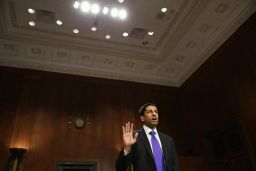
The 49-year-old judge on the U.S. Court of Appeals for the District of Columbia Circuit, Srinivasan (shree-nee-VAH-sahn) was born in India, and earned a degree from Stanford as well as its law school and an MBA.
Pros: He is a top contender if the President wants a so-called consensus nominee who could peel off enough GOP votes to get past a filibuster. He was confirmed 97-0 to the appellate court in 2013, and Sen. Ted Cruz praised him as a long-time friend. He clerked for Justice Sandra Day O’Connor and appellate judge J. Harvie Wilkinson, both considered moderate judges and appointed by Republican presidents.
Drawbacks: Democrats might not want to risk burning him on a political fight and his record with labor isn’t perfect for progressives. He also has previously represented Enron leader Jeffrey Skilling and ExxonMobil, not exactly liberal favorites.
Paul Watford
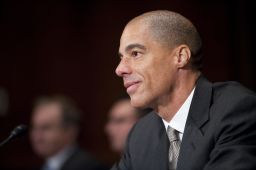
Watford would be only the third African-American to serve on the court, after Thurgood Marshall and Clarence Thomas. Like Srinivasan, Watford is young – a 49-year-old Obama nominee to a federal appellate court. Serving on the 9th U.S. Circuit Court of Appeals, Watford previously clerked for Justice Ruth Bader Ginsburg and conservative judge Alex Kozinski.
Pros: Watford would be a chance for Obama to make history, and politically he would rally the Democratic base.
Drawbacks: He faced significant opposition from Senate Republicans and was confirmed with less-than-unanimous support to the appellate court, 61-34 in May 2012.
Jane Kelly
A Harvard Law School classmate of Obama, Kelly, of the 8th U.S. Circuit Court of Appeals based in Cedar Rapids, Iowa, was confirmed unanimously in April 2013. She previously spent most of her career as a public defender in the Northern District of Iowa. She has a potential geographic advantage: Iowa. Her appeals court nomination was helped by Sen. Chuck Grassley, an Iowa Republican and who now chairs the Senate Judiciary Committee.
Pros: Unanimous selection by the Senate, closeness to Grassley.
Drawbacks: Lack of a judicial record and little in the way of scholarship to show what her legal philosophy is.
Merrick Garland
Garland, the chief judge for the D.C. appeals court, has been on short lists before. An appointee of President Bill Clinton, Garland has the legal chops to do the job. He’s a graduate of Harvard and Harvard Law School and served at the Department of Justice. He is former clerk for Justice William Brennan and has served in government as well as private practice. But he’s 63, and Obama would likely prefer to nominate someone younger who can serve on the court longer.
Pros: Age may be something that helps with the GOP, as Garland wouldn’t serve on the court as long as younger nominees.
Drawbacks: Always the bridesmaid, never the bride… Garland has been passed over for past nominations that he was considered for, including for the seat that Justice Kagan now holds. He would not be the same transformative, historic pick as some of the others on this list.
Patricia Millett
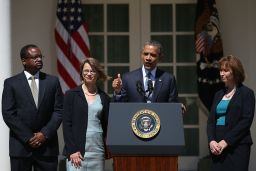
Millett, of the D.C. Circuit Court of Appeals, has appeared before the Supreme Court more than 30 times. She led the Supreme Court and appellate practices at Akin Gump Strauss Hauer & Feld LLP. She was an assistant in the office of the solicitor general and clerked for Judge Thomas Tang of the 9th Circuit. And she has a second-degree black belt in Tae Kwon Do.
A potential drawback is her connection to the use of the so-called nuclear option.
Millett, Robert Wilkins and Cornelia Pillard were all confirmed in late 2013 or early 2014 as part of the Democrats’ fight with Senate Republicans over judicial nominations, resulting in Harry Reid’s use of parliamentary procedure to end the use of filibusters for federal judges. That creates an instant drawback for these three judges – they didn’t have the broad support others on the list had. Millett was confirmed 56-38, for instance.
Pillard would be a more liberal choice for Obama. She is a former professor at Georgetown Law School and an assistant to the solicitor general during the Clinton administration.
Robert Wilkins
Wilkins is an African-American who sits on the D.C. appeals court. He may be most well-known for his role as the lead plaintiff in a civil-rights lawsuit in Maryland after his family was stopped and their car was searched on a Maryland highway in 1992.
The lawsuit, which came to be known as the “driving while black” case, resulted in a nationwide discussion and reforms regarding police stop-and-search activities.
He was also part of the committee that worked to establish the Smithsonian National Museum of African-American History, which is scheduled to open later this year on the National Mall.
Adalberto Jordan
Jordan fits the bill of another Obama appellate nominee who has an engaging personal story, was recently vetted for a federal judgeship and won a large majority in the Senate when confirmed.
Born in Havana, Cuba, Jordan came to the United States as young child. He clerked for Justice Sandra Day O’Connor, was a federal prosecutor in south Florida and appointed to the bench in Southern District of Florida by President Bill Clinton in 1999.
Obama nominated Jordan to the 11th U.S. Circuit Court of Appeals in 2011, and while a vote on his nomination was delayed due to an unrelated fight between the GOP and White House over recess appointments, Jordan was eventually confirmed 94-5 in February 2012.
Jordan would be an interesting pick politically. It could help galvanize Democrats in Florida, a key state in the presidential election. It would also force Florida Sen. Marco Rubio, a GOP presidential candidate, to have to explain his position on letting Obama fill Scalia’s seat – Rubio voted for Jordan in 2012.
Ketanji Brown Jackson
Jackson, a judge on the U.S. District Court for the District of Columbia Circuit, is being vetted by the White House, the National Law Journal first reported and confirmed by CNN.
Until December 2014, Jackson also served as vice chairman of the U.S. Sentencing Commission and had previously worked as an attorney in private practice and as a federal public defender.
A former clerk to Justice Stephen Breyer and Harvard Law School graduate, Jackson has a unique personal connection to the congressional GOP leadership, related by marriage to House Speaker Paul Ryan.
Jacqueline Nguyen
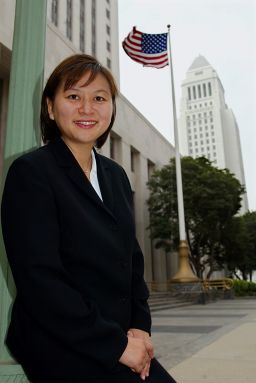
Nguyen is another judge on the 9th Circuit, and she would certainly fit the mold of a historic pick. Born in Vietnam in 1965, her family came to the United States as refugees 10 years later. Obama nominated the former prosecutor to the federal bench in 2011; she was confirmed the next year. Her story could help Obama make the sale and force the GOP’s hand.
Pros: “She is someone who would make a great story,” CNN analyst Jeffrey Toobin said recently on “New Day.” And she was confirmed to the appellate court, 91-3, in May 2012, potentially making it difficult for Republicans to justify voting against her.
Drawbacks: Nguyen has not dealt with many high profile controversial legal issues, Toobin said.
Unlikely picks

David Barron, 48, another judge who sits on the 1st U.S. Circuit Court of Appeals, might be more controversial than others on this list. At his confirmation, hearing he drew the ire of senators for legal memos he wrote as a Justice Department official justifying the killing of an American terrorism suspect overseas with drones. He was a clerk to Justice John Paul Stevens in the mid-1990s. He could rally liberal Democrats who like his scholarly work critiquing the Bush administration’s assertion of commander-in-chief power.
A amjor drawback: Once in the Obama administration, Barron wrote legal memos that backed the extrajudicial killing of an American citizen, Anwar al-Awlaki, in Yemen. That caused both liberals and libertarian-minded Republicans to oppose him. He only passed the Senate 53-45, short of the 60 votes that would be needed to break a filibuster.
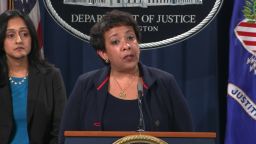
Obama’s second attorney general, Loretta Lynch would be a signal the White House is going the political route, nominating someone who is qualified but whose political links – and the fact she’s not a sitting judge – make her difficult to confirm. She is a former U.S. attorney in New York and has a strong record on civil-rights issues as U.S. attorney general.
Lynch’s path through the Senate was not an easy one, primarily because she served as an outlet for GOP frustration and opposition to Obama’s executive actions on immigration and other administration policies. Republican presidential candidates Ted Cruz and Rubio voted to filibuster her nomination. Choosing Lynch could also lead Republicans to seek records of internal deliberations between her and other administration officials on a wide variety of issues.
Dropped out
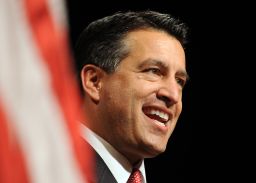
Brian Sandoval is Hispanic, a former federal judge and the governor of Nevada. He’s also a Republican.
Sandoval’s name came up last month when Senate Minority Leader Harry Reid of Nevada suggested he would make a good justice. But he quickly said he’s not interested.
Some liberals were quick to question Sandoval. Ian Millhiser, from Think Progress, said that Sandoval was being considered was “surprising” given his past statements criticizing Obamacare, his “mixed record” on the environment and comments against Obama’s executive actions on immigration.
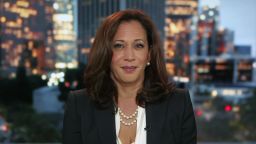
California Attorney General Kamala Harris, who is running for Senate, said last month she doesn’t want to be on the list. “I’m not putting my name in for consideration. I do not wish to be considered. I am running for the United States Senate,” Harris told reporters, the Los Angeles Times reported.
And while there was some early talk about nominating a liberal senator like Amy Klobuchar of Minnesota or Cory Booker of New Jersey, that has fallen by the wayside.
In theory, a sitting senator might be able to use personal relationships with his or her colleagues to move their nomination forward. But given this confirmation fight is going to be fought on a national level, connections and familiarity might not be enough. A sitting lawmaker would also break with the recent pattern of choosing someone already on the federal bench.


